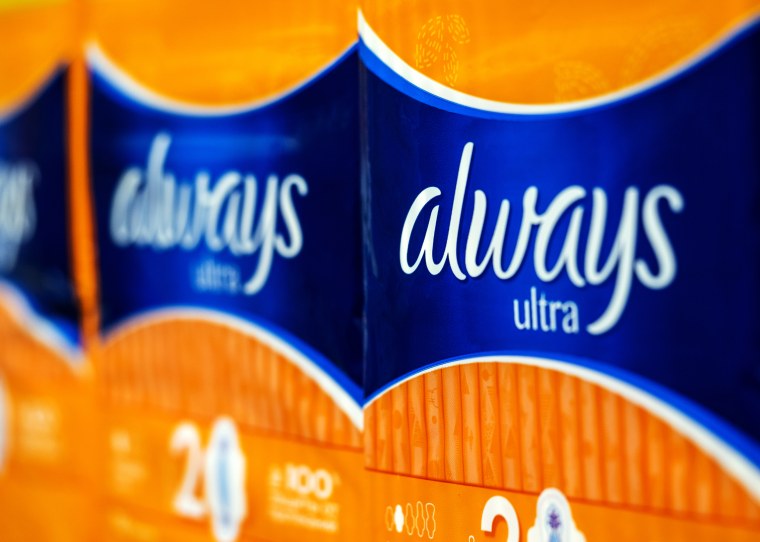Always announced it will remove the Venus symbol from its menstruation products packaging following calls by transgender advocates, who said its parent, Procter & Gamble, was alienating trans and gender-nonconforming customers by not acknowledging that they, too, can experience menstruation.
“Could someone from Always tell me why it is imperative to have the female symbol on their sanitary products?” Twitter user Melly Bloom, one of those advocates, tweeted over the summer. “There are non-binary and trans folks who still need to use your products too you know!”
The company announced it would be removing the female signs from its packaging starting in December and aims to have a new design distributed worldwide by February 2020.
“For over 35 years, Always has championed girls and women, and we will continue to do so. We’re also committed to diversity and inclusion and are on a continual journey to understand the needs of all of our consumers,” Proctor & Gamble's media relations team told NBC News in an email Monday. “We routinely assess our products, packaging and designs, taking into account consumer feedback, to ensure we are meeting the needs of everyone who uses our products. The change to our pad wrapper design is consistent with that practice.”
LGBTQ health experts said the decision is an ostensibly small change that may have significant consequences for trans and nonbinary people.
“This is a great move,” Dr. Jack Turban, a resident physician in psychiatry at Harvard Medical School, said in an email. “First of all, the symbol is unnecessary. Second of all, it sends a message to transgender and non-binary people who need these products that their identities are embraced and supported by the company,”
Steph deNormand, the Trans Health Program manager at Fenway Health, also championed the design adjustment, stating that seeing “female-coded” imagery can not only exacerbate gender dysphoria for trans and gender-nonconforming people, but can also prevent them from purchasing or accessing sanitary products.
“For folks using these products on a nearly monthly basis, it can be harmful and distressing to see binary/gendered images, coding, language and symbols. So, using less coded products can make a huge difference,” deNormand said. “Trans and nonbinary folks are constantly misgendered, and a gesture like this can broaden out the experiences and open up spaces for those who need the products.”
While a number of transgender advocates and LGBTQ health experts applauded P&G’s decision to redesign the Always packaging, the company’s announcement sparked criticism online, including a bounty of transphobic commentary.
The Daily Mail, which has a history of publishing anti-LGBTQ stories, accused P&G of “kowtowing” to the “transgender lobby” and reported that women in the United Kingdom are now boycotting the leading brand. The site also used a picture of teenage trans activist Ben Saunders to accompany its story. Saunders, like Bloom, was reportedly among those who had reached out to Always regarding its Venus symbol.
While some critics accused the company of trying to “erase women,” much of the criticism appears to be rooted in the misconception that transgender and nonbinary people cannot experience menstruation — a claim medical experts have debunked.
“Menstruation can occur for anyone with a uterus,” Turban wrote. “There are many medications that stop or lighten periods (used by both cisgender and transgender people), but these do not completely stop menstruation for all people.”
DeNormand also noted that not all trans and nonbinary people take hormones that can affect menstruation.
“While for a lot of people who take testosterone, the bleeding often decreases or goes away, for some it doesn’t,” deNormand explained. “And for others, taking hormones does not affirm their gender and is not the goal, so they may have a regular menstrual cycle.”
While some are now calling for a boycott of the brand, Turban said Always’ decision uplifts trans and gender-nonconforming people.
“The greatest predictor of good mental health among transgender and nonbinary people is feeling that they are accepted,” Turban said. “The company is showing that it accepts, respects, and cares about this population, which is a powerful statement for a community that is so often marginalized and rejected.”
Always’ announcement came right before the first National Period Day, which took place Oct. 19 — a day of protests elevating the issue of “period poverty” and demanding an end to taxes on tampons and pads.




